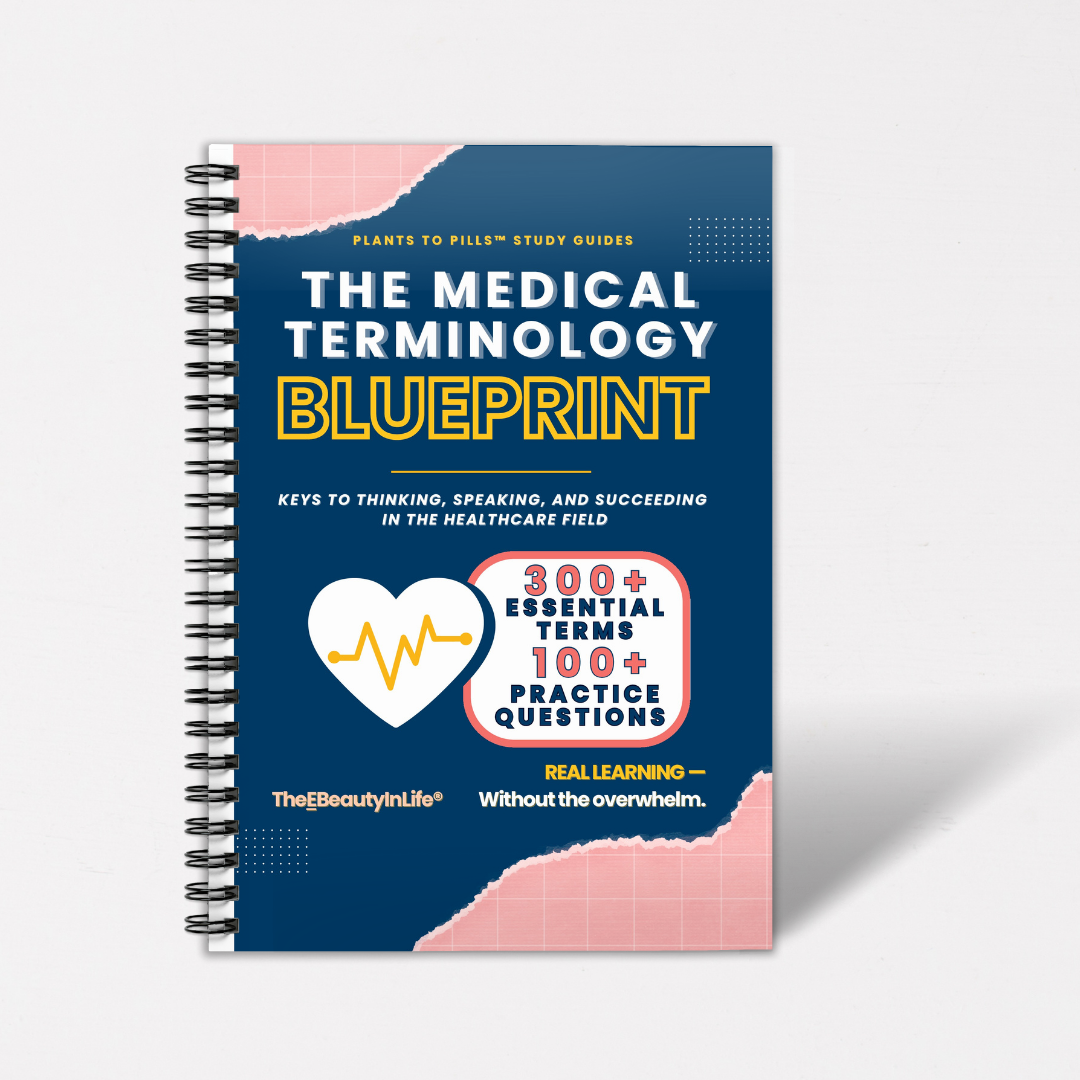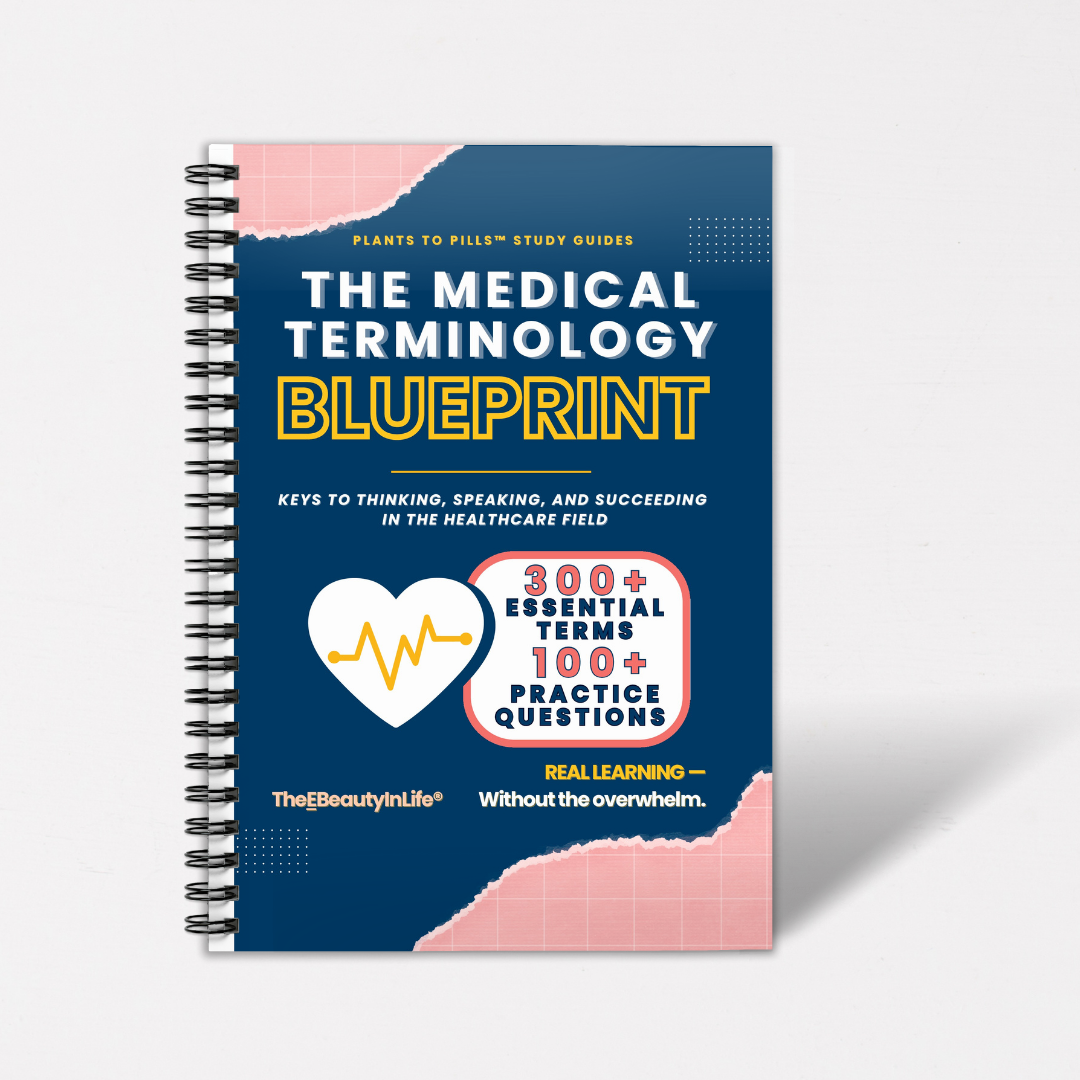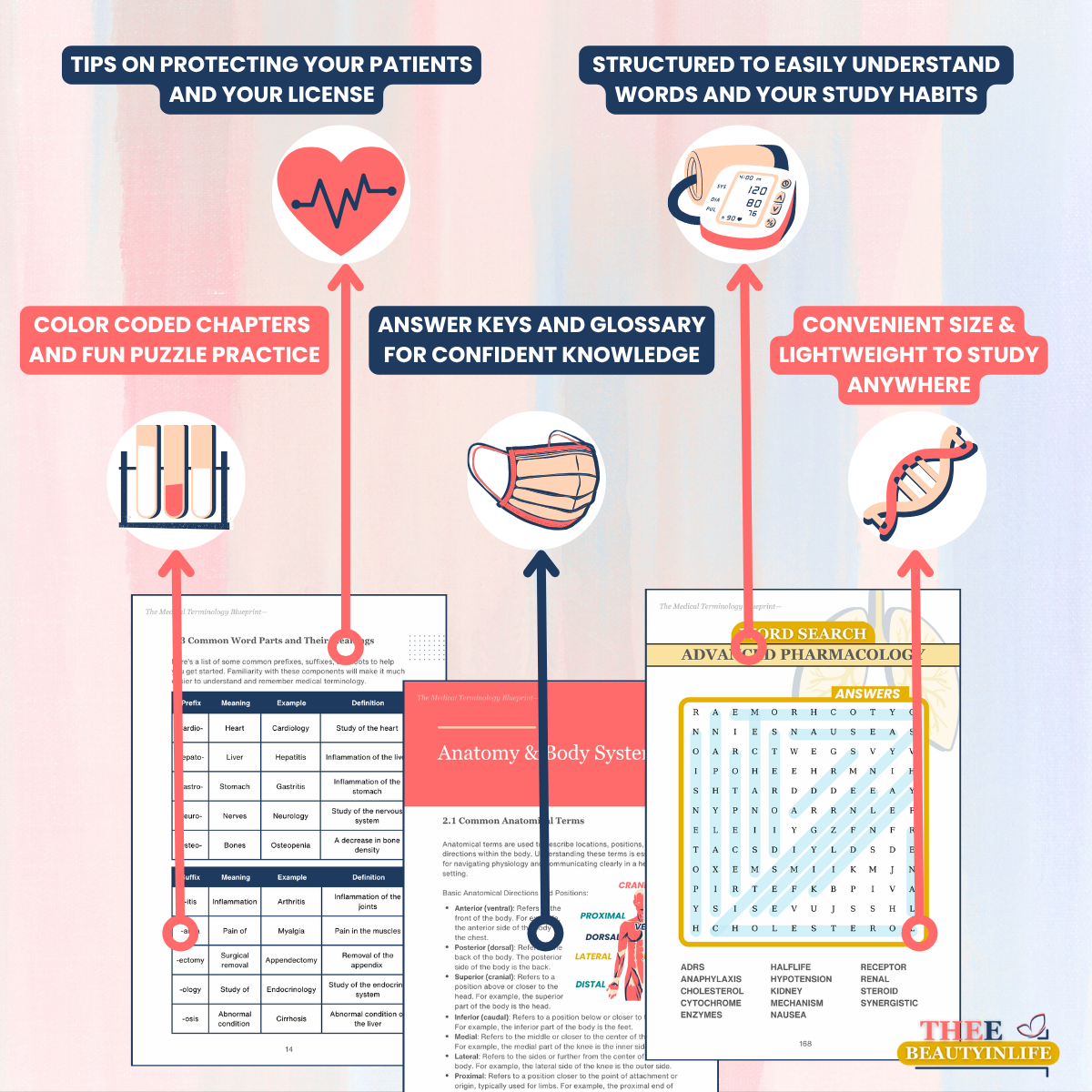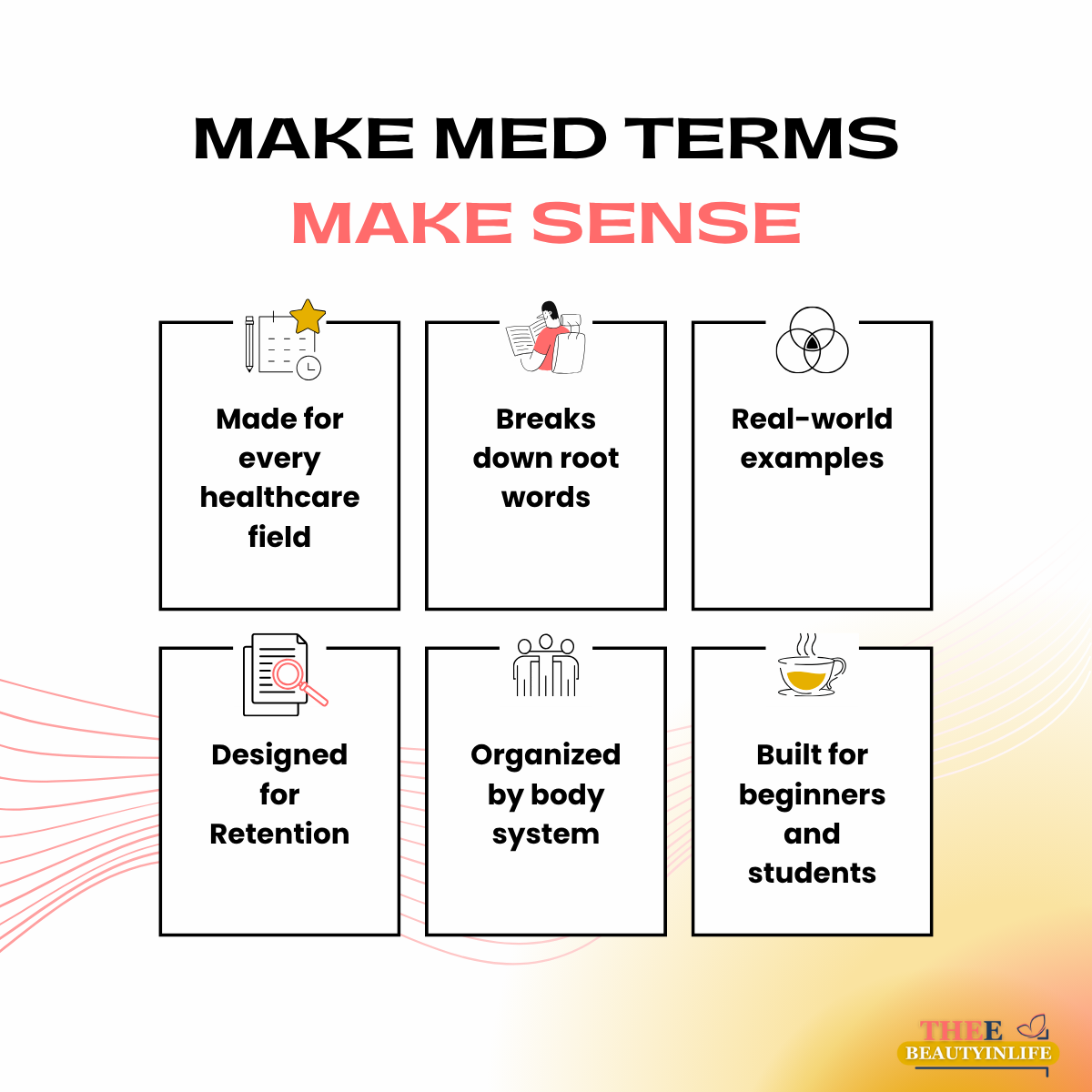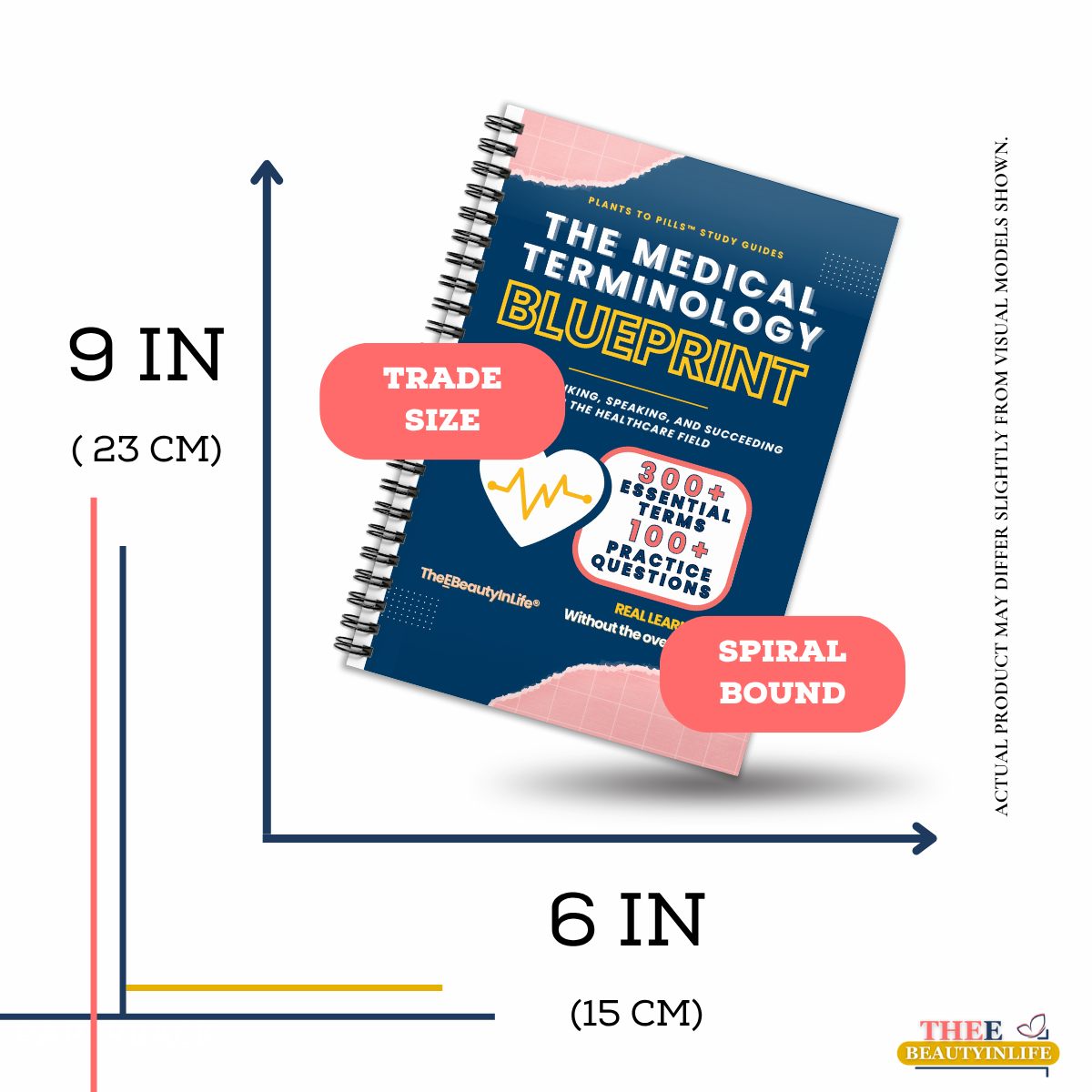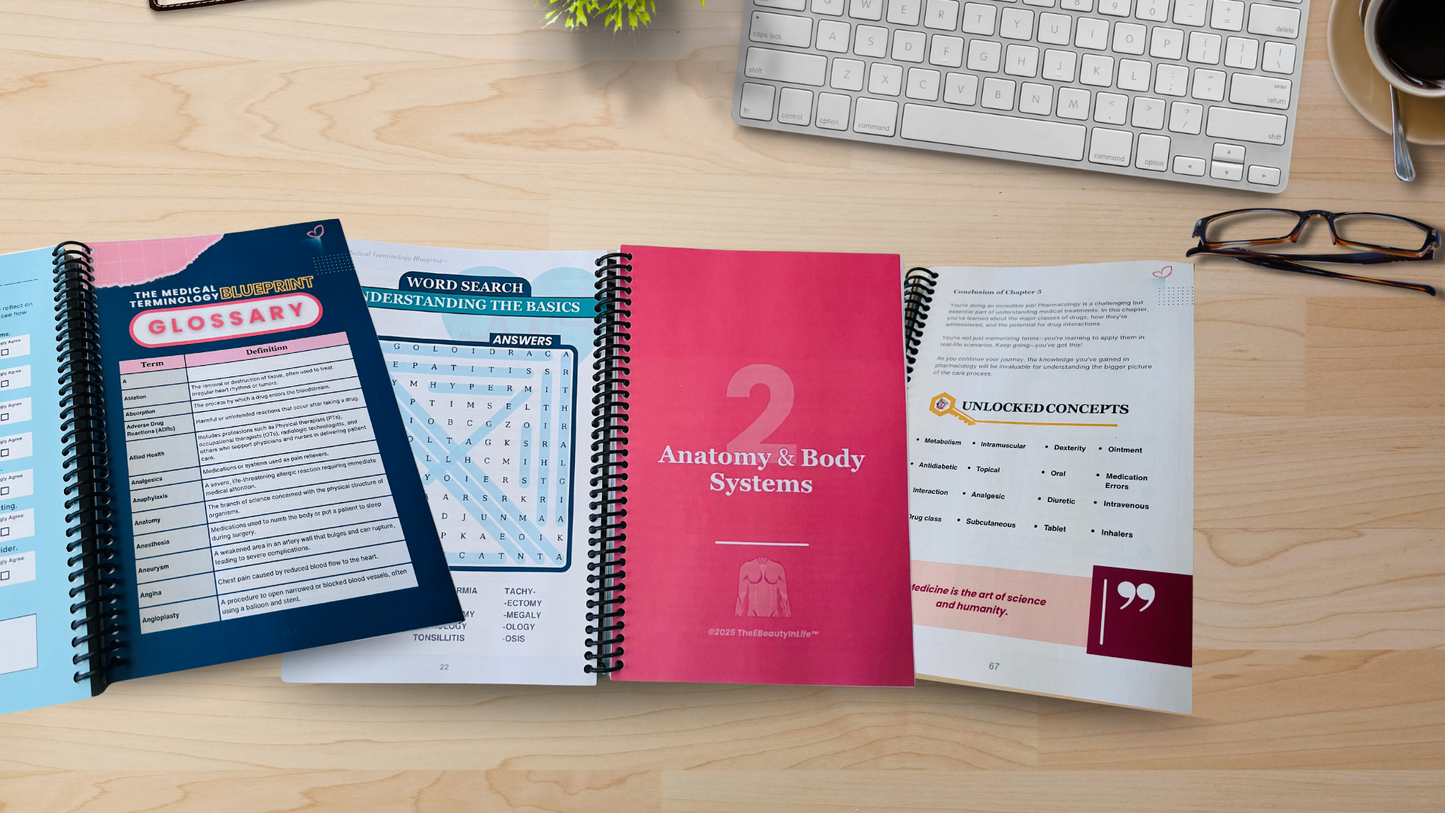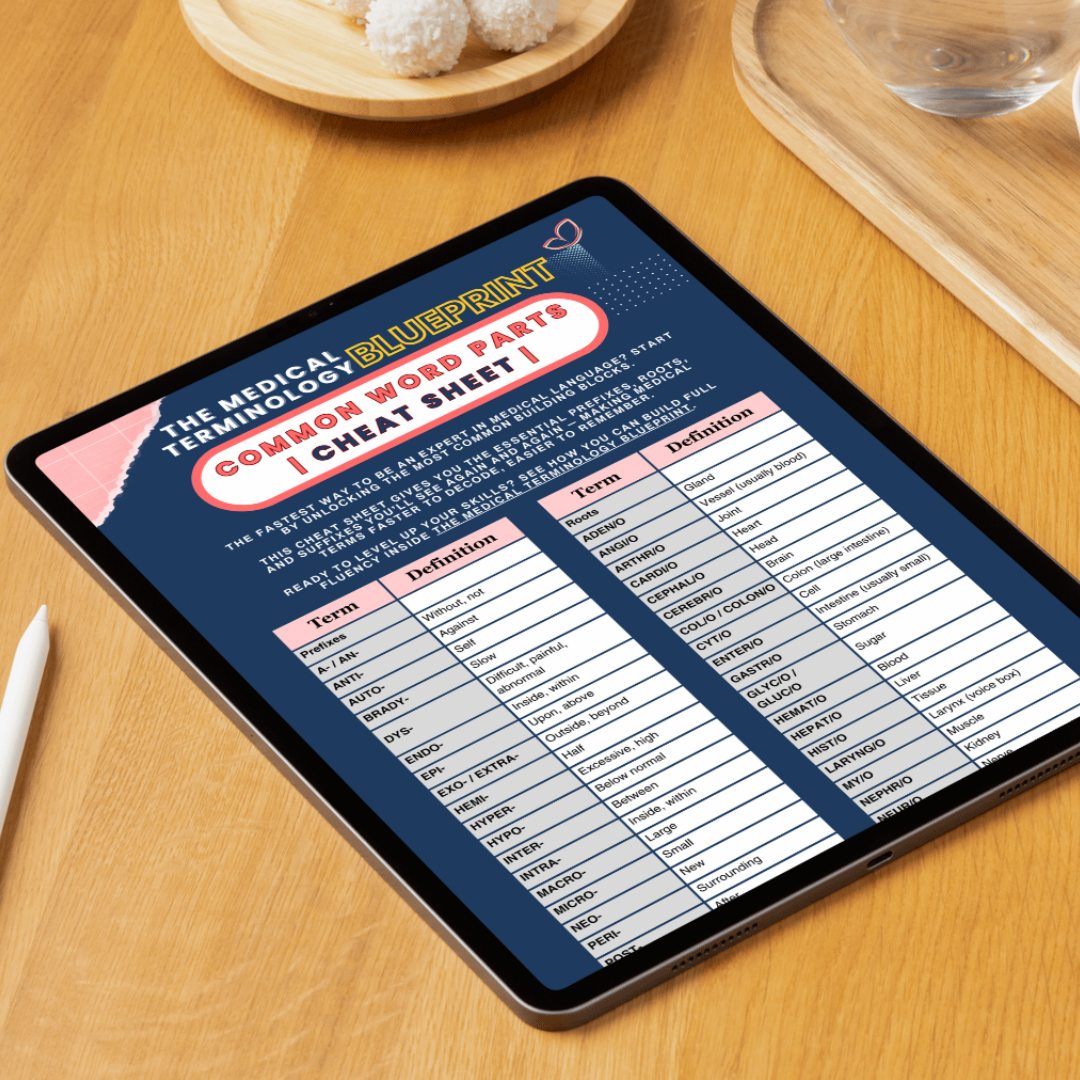
5 Ways to Start Healthcare Training with Less Stress and More Clarity
Share
5 Ways to Start Healthcare Training with Less Stress and More Clarity
Starting off in healthcare—whether you're studying nursing, pharmacy, or any clinical profession—can feel like information overload. But with a structured approach, it’s possible to reduce stress, build confidence, and focus on passing that class. Here are five practical ways to ease the transition and stay grounded during your training.

1. Learn Medical Terminology in Context
Instead of memorizing disconnected word parts, focus on how medical terms show up in real-life scenarios. When you understand what a term refers to—within a patient chart or treatment plan—it becomes easier to retain and apply.
Quick Tip: Pay attention to word parts like “-emia” (blood condition) or “tachy-” (fast), but always tie them to real examples. “Tachycardia” isn’t just a vocabulary word—it might describe a patient in distress.
2. See the Body as a Connected System
You might study the heart, lungs, or hormones separately, but they function together to maintain life and health. Early on, train yourself to ask how one system impacts another.
Example: Swelling in the legs? Think beyond fluid and consider heart failure, kidney function, or even liver health. This systems-based thinking reduces confusion and improves your clinical judgement over time.
3. Focus on Meaning, Not Just Memorization
Memorizing terms helps in the short term, but understanding how to interpret unfamiliar language is what gives you staying power. Break down words, look at the root meaning, and ask how it might appear in a patient’s situation.
Why it matters: When you can read a term and make an educated guess about its meaning, you build confidence and reduce the pressure to "know it all." And when what you’ve learned inevitably comes up again, you’ll have a solid foundation to build on.
4. Use Reinforcement Tools that Actually Stick
Your brain retains information better when it sees it in different formats. Mix up how you review terms—try puzzles, short quizzes, or case-based questions to build recall through repetition.
Practical option: The Medical Terminology Blueprint includes fill-in-the-blank puzzles, quizzes, and clinical examples designed to help reinforce what you’re learning—without starting from scratch every time.
5. Build Professional Mindset Habits Early
Stress often comes from feeling behind or unprepared. That’s why it helps to build small, repeatable habits that keep your head clear and focused. Try reflecting on what you’ve learned, tracking your progress, or practicing short explanations out loud.
Think of it this way: These aren’t just study tools—they’re mindset habits that help you think more like a future healthcare professional.
Final Thought: Structure Beats Hustle
You don’t need to learn everything at once—but having a clear approach helps reduce that overwhelming feeling. If you’re looking for a structured way to practice terminology, clinical thinking, and retention, The Medical Terminology Blueprint was designed to support that process from the ground up.




